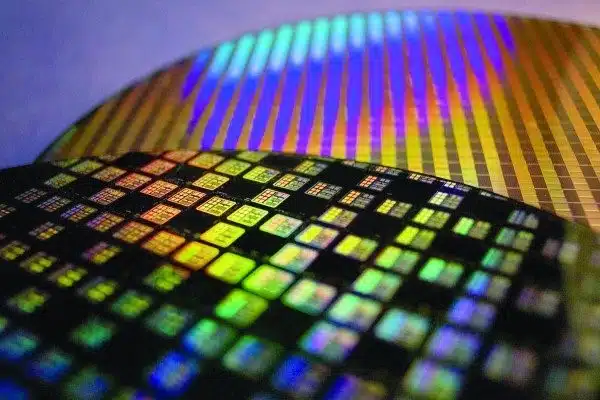The United States is anticipated to propose additional measures to limit Chinese companies’ access to semiconductors and other high-performance computing technologies.
According to several people with knowledge of the situation, the Joe Biden administration will likely announce new restrictions on Chinese companies’ access to high-performance computing technologies.
The regulations, which could be revealed this week, would be among the most substantial moves taken by the Biden administration to restrict China’s access to breakthrough semiconductor technology. They would expand on a Trump-era restriction that targeted Chinese telecom giant Huawei by barring corporations from giving it anything built with American technology, hardware, or software.
According to two persons familiar with the plans, several Chinese enterprises, government research centres, and other organisations would face restrictions similar to Huawei. In effect, any company that uses American-made technology would be barred from selling to the Chinese firms that the administration is targeting. It is unclear whether Chinese companies and laboratories would be affected.
The “foreign direct product rule” broadening is only one component of Washington’s proposed limits. The administration is also expected to try to limit the supply of advanced US-made tools to China’s local semiconductor industry.
The most advanced supercomputing and data centre projects in China won’t be able to purchase American microchips, according to Washington, the sources added. Major research universities and internet giants like Alibaba and Tencent may find it difficult to obtain the components they want to construct cutting-edge data centres and supercomputers as a result of this restriction.
The cap could substantially impede China’s capacity to create the potent number-crunching technology that serves as the foundation for advancements in a variety of sectors, including biosciences, artificial intelligence, and missile engineering as supercomputer performance levels improve over time. Chip and tool import restrictions were previously reported by Reuters.
Additionally, according to several people familiar with the discussions, the Biden administration has been preparing an executive order that would enable the government to examine foreign investments made by American corporations for potential national security risks. It has also considered additional measures applicable to Chinese memory-chip manufacturer Yangtze Memory Technologies Company, or YMTC.
Considering the importance of semiconductors and semiconductor technology for national economies, weapons systems, and other military applications, Orville Schell, a longtime China expert at the Asia Society, claimed that the U.S. government was moving to separate American and Chinese supply chains on semiconductors and semiconductor technology.
U.S. authorities have grown more anxious in the past one to two months about Chinese firms that produce midrange semiconductors rather than only the smallest, most cutting-edge technology, according to Schell. Officials do not want Chinese chipmakers to employ technology from the United States or other partner nations to build those chips since those older goods are still essential parts of weapons. Additionally, they oppose Chinese businesses from becoming major suppliers worldwide.
Chinese firms that produce intermediate semiconductors, rather than only the smallest, most cutting-edge technology, have come under increased scrutiny from U.S. officials over the past one to two months, according to Schell. This is due to officials’ desire to prevent Chinese chipmakers from using technology from the United States or other ally countries to build those chips, which are still essential parts of weapons. They also do not want Chinese businesses to become major suppliers worldwide.
If implemented, the sanctions would represent the United States’ most aggressive effort to date to attack China’s booming supercomputer and data centre business. Supercomputers with a variety of capabilities are used by numerous Chinese colleges, state-run businesses, and internet enterprises. Plenty is used for important, if prosaic, tasks such as analyzing road traffic, managing social networks or predicting the weather, but analysts and researchers have shown how others are used for more malign purposes.
Some supercomputers in China have been used to power intrusive monitoring programmes that target ethnic minorities. Beijing has used others to simulate nuclear explosions to create new weapons that could get past American defences.
The Biden administration’s larger plan to starve China of essential technologies while investing heavily in American chip manufacturing facilities includes export restrictions. These actions are being taken as Beijing intensifies its hostility toward Taiwan, which manufactures the majority of the world’s advanced semiconductors.
The Biden administration has emphasised its extensive use of export bans as a key instrument in punishing Russia for its invasion of Ukraine, claiming that it will impair Russia’s defence, technology, energy, and other critical industries in the long run. Officials in the United States think they can use the same instrument to resolve national security issues with other adversaries, including China. According to the officials, the Trump administration’s use of export limits intended at stifling Huawei served as a precedent for how the controls on Russian corporations were formulated.
The Biden administration set new limits on the selling of advanced computer chips to China and Russia last month. These restrictions applied to high-end types of chips known as graphic processing units produced by Silicon Valley firms such as Nvidia and Advanced Micro Devices. Originally designed to produce pictures in video games, the items have become important for massive computers used to train artificial intelligence systems.
Read more: https://tdznkwjt9mxt6p1p8657.cleaver.live/













